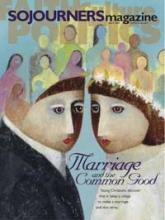Graham Greene always liked the idea of damnation. His contemporary George Orwell joked that, in Greenes view, hell was little more than a "high-class nightclub" for distinguished sinners. Throughout the late English writers long career (Greenes centennial was celebrated last year), he depicted many characters who viewed, and perhaps justified, their own sin as a vehicle for connecting to others. It was corruption that seemed to give the world a kind of identity, even a uniting principle. His characters lived and understood themselves in a fallen world where martyrdom was often the cost of salvation. No wonder Greene took French writer (and fellow Catholic) Charles Peguys famous observation to heart that it is sinners and saints who best understand Christianity. In the existential landscape known as "Greeneland," the two are inverses of each other, both attesting to the stricken state of creation itself.
Read the Full Article
